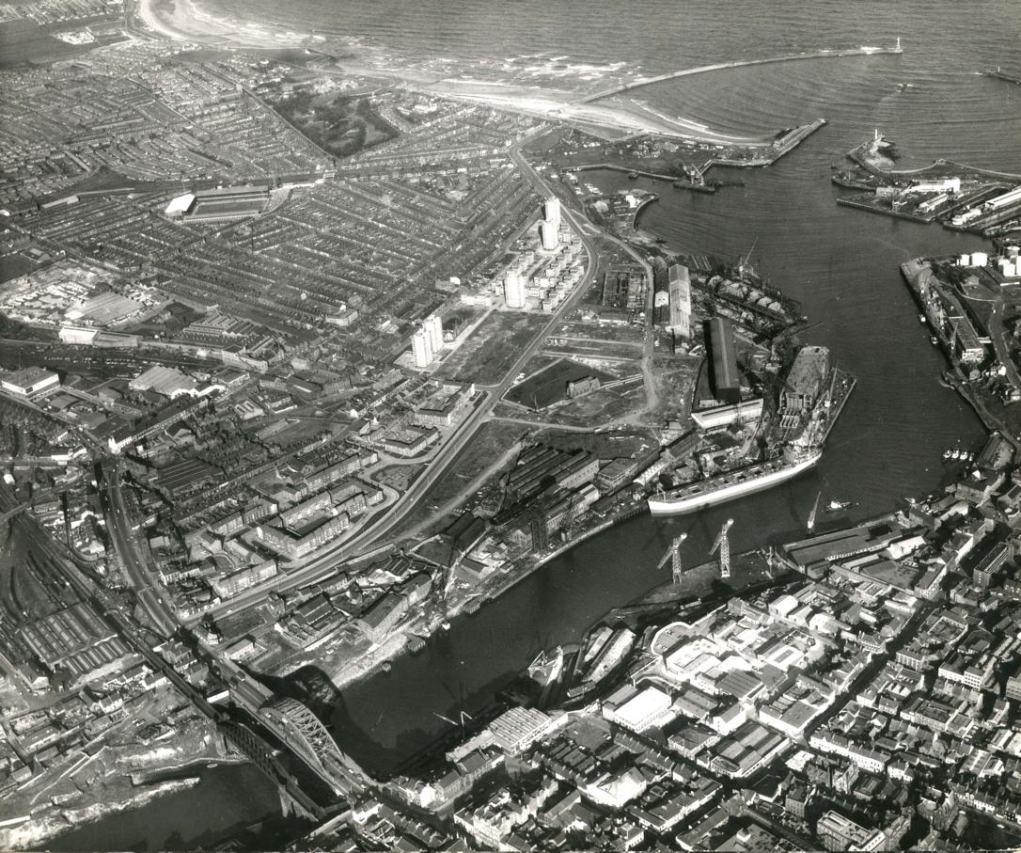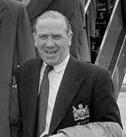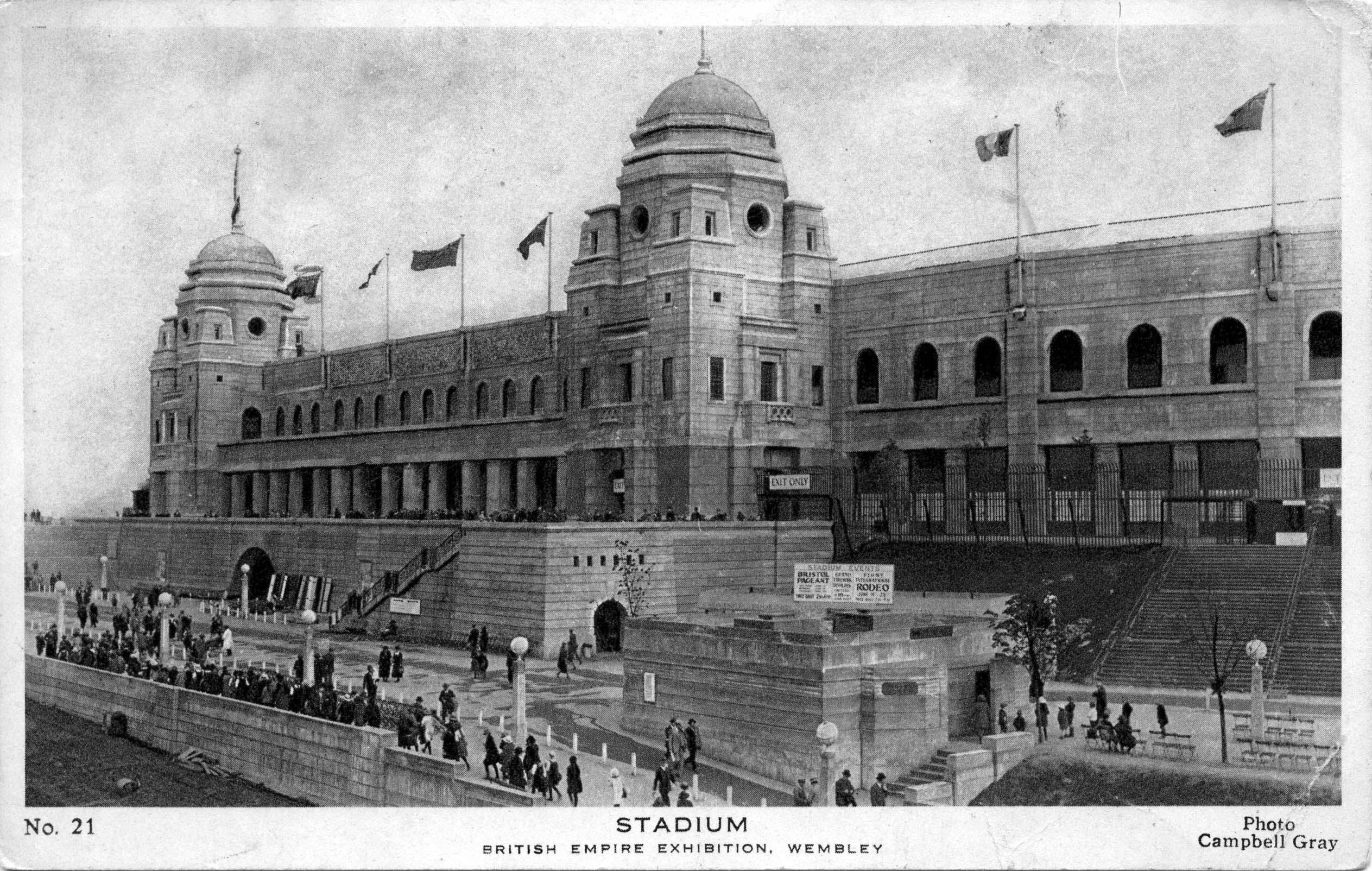|
Bobby Gurney
Bobby Gurney (13 October 1907 – 14 April 1994) was a football forward who is the highest goal scorer in the history of his only senior club as a player, Sunderland. Early years Born in Stewart Street, Silksworth, Sunderland, his father Joe was a miner at Silksworth Colliery. His mother, Elizabeth, stayed at home to look after Bobby, his three brothers and one sister. Bobby took up football as a child, playing for his village team. His older brother, Ralph, also played football, as a goalkeeper. All his brothers went into pit jobs after leaving school. Sunderland Bobby was signed to Sunderland in May 1925, after being spotted by Charlie Buchan while playing for top non-league side Bishop Auckland. He made his debut nearly a year later against West Ham United on 3 April 1926, scoring once in a 3–2 defeat. He would play for the next three seasons alongside a striker who hit at least 35 league goals in each of his four full seasons at Roker Park, Dave Halliday, the most ... [...More Info...] [...Related Items...] OR: [Wikipedia] [Google] [Baidu] |
Silksworth
Silksworth is a suburb of the City of Sunderland, Tyne and Wear. The area can be distinguished into two parts, old Silksworth, the original village and township which has existed since the early middle ages, and New Silksworth, the industrial age colliery village which expanded north west of the original settlement. The former colliery being situated to the north west of the village near to the Gilley Law. The population of the ward was 10,931 at the 2011 census. History Old Silksworth The area of Silksworth has been subject to human activity since the Bronze Age, with archaeological sites of ancient barrows having been discovered on the surrounding hills. The name of the place itself is thought to be of Anglo-Saxon origin and means ‘the worþ (enclosure) of Sigelac (a man's name)'. The first reference to the location appeared in the Middle Ages and is first referenced in a list of appendages of South Bishopwearmouth in King Athelstan’s gift to the See of Durham in 930 ... [...More Info...] [...Related Items...] OR: [Wikipedia] [Google] [Baidu] |
Roker Park
Roker Park was a football ground in Roker, Sunderland, England, which was the home of Sunderland A.F.C. from 1898 to 1997, before the club moved to the Stadium of Light. Its final capacity was around 22,500, with only a small part being seated; it had been much higher, attracting a record crowd of 75,118. History In the 1890s, the then Sunderland chairman and his brother decided to build a bigger ground for the club, to replace what was then the club's current ground at Newcastle Road. The club had negotiated to buy farmland that belonged to a Mr. Tennant and part of the agreement was that Sunderland would have to build a house on the site as well as their new stadium. Until this house was built, Sunderland still had to pay rent on the land. Within a year of the land being bought, Roker Park had been built, with the wooden stands only taking three months to build. The Clock Stand had 32 steps, no seats and a crush barrier for safety. The turf was brought from Ireland, and last ... [...More Info...] [...Related Items...] OR: [Wikipedia] [Google] [Baidu] |
1935–36 Football League
The 1935– 36 season was the 44th season of The Football League. This season saw two significant changes in the First Division. Prior to this season Aston Villa and Blackburn Rovers had been the only ever-present members of English football's top division. Both were relegated this season to end their sequences. First Division Results Maps Second Division Results Maps Third Division North Results Maps Third Division South Results Maps See also * 1935-36 in English football *1935 in association football *1936 in association football The following are the football events of the year 1936 throughout the world. Events * Foundation of Beitar Jerusalem F.C. Winners club national championship * Argentina: River Plate * England: Sunderland * France: RC Paris * Italy: Bologna ... References *Ian Laschke: ''Rothmans Book of Football League Records 1888–89 to 1978–79''. Macdonald and Jane's, London & Sydney, 1980. {{DEFAULTSORT:1935-36 F ... [...More Info...] [...Related Items...] OR: [Wikipedia] [Google] [Baidu] |
Darlington
Darlington is a market town in the Borough of Darlington, County Durham, England. The River Skerne flows through the town; it is a tributary of the River Tees. The Tees itself flows south of the town. In the 19th century, Darlington underwent substantial industrial development, spurred by the establishment there of the world's first permanent steam-locomotive-powered passenger railway: the Stockton and Darlington Railway. Much of the vision (and financing) behind the railway's creation was provided by local Quaker families in the Georgian and Victorian eras. In the 2011 Census, the town had a population of 92,363 (the county's largest settlement by population) which had increased by the 2020 estimate population to 93,417. The borough's population was 105,564 in the census, It is a unitary authority and is a constituent member of the Tees Valley Combined Authority therefore part of the Tees Valley mayoralty. History Darnton Darlington started as an Anglo-Saxon settlement. ... [...More Info...] [...Related Items...] OR: [Wikipedia] [Google] [Baidu] |
Peterborough United
Peterborough United Football Club is an English professional football club based in Peterborough, Cambridgeshire, England. The team compete in League One, the third tier of the English football league system. Peterborough have a long-standing rivalry with nearby club Cambridge United, with whom they contest the Cambridgeshire derby. They have spent their entire history at London Road and are nicknamed "The Posh". Peterborough United formed in 1934 and joined the Midland League. Having won the Midland League title for five consecutive seasons from 1955-56, they were elected into the Football League in 1960. Peterborough immediately won the Fourth Division title in 1960–61, scoring a Football League record 134 goals. Relegated in 1968, they won another Fourth Division title in 1973–74, though suffered a further relegation in 1979. Peterborough were promoted back into the Third Division at the end of the 1990–91 season and reached the second tier with victory in the 19 ... [...More Info...] [...Related Items...] OR: [Wikipedia] [Google] [Baidu] |
Midland League
The Midland Football League is an English football league that was founded in 2014 by the merger of the former Midland Alliance and Midland Combination. The league has four divisions that sit at levels 9–12 of the football pyramid. History The league was formed in 2014 following the merger of the Midland Alliance and Midland Combination. Successful Premier Division clubs can win promotion to the 8th level of the English football league system, while the competition also has a number of feeder leagues at level 11, which provide new member clubs each year. Entry can also be gained by applying from non-pyramid leagues such as the Birmingham & District Football League The Birmingham and District Football League (formerly the Birmingham & District Amateur Football Association and often referred to as the Birmingham AFA) is an amateur association football competition covering the city of Birmingham, England, and .... Clubs are also liable to be transferred to other leagues if ... [...More Info...] [...Related Items...] OR: [Wikipedia] [Google] [Baidu] |
Hampden Park
Hampden Park (Scottish Gaelic: ''Pàirc Hampden''), often referred to as Hampden, is a football stadium in the Mount Florida area of Glasgow, Scotland. The -capacity venue serves as the national stadium of football in Scotland. It is the normal home venue of the Scotland national football team and was the home of club side Queen's Park for over a century. Hampden regularly hosts the latter stages of the Scottish Cup and Scottish League Cup competitions and has also been used for music concerts and other sporting events, such as when it was reconfigured as an athletics stadium for the 2014 Commonwealth Games. There were two 19th-century stadia called Hampden Park, built on different sites. A stadium on the present site was first opened on 31 October 1903. Hampden was the biggest stadium in the world when it was opened, with a capacity in excess of 100,000. This was increased further between 1927 and 1937, reaching a peak of 150,000. The record attendance of 149,415, for a S ... [...More Info...] [...Related Items...] OR: [Wikipedia] [Google] [Baidu] |
Scotland National Football Team
The Scotland national football team gd, Sgioba Ball-coise Nàiseanta na h-Alba sco, Scotland National Fitbaa Team represents Scotland in men's international football and is controlled by the Scottish Football Association. It competes in the three major professional tournaments: the FIFA World Cup, UEFA Nations League and the UEFA European Championship. Scotland, as a country of the United Kingdom, is not a member of the International Olympic Committee, and therefore the national team does not compete in the Olympic Games. The majority of Scotland's home matches are played at the national stadium, Hampden Park. Scotland is the joint oldest national football team in the world, alongside England, whom they played in the world's first international football match in 1872. Scotland has a long-standing rivalry with England, whom they played annually from 1872 until 1989. The teams have met only eight times since then, most recently in a group match during Euro 2020 in June 2021. ... [...More Info...] [...Related Items...] OR: [Wikipedia] [Google] [Baidu] |
1937 FA Cup Final
The 1937 FA Cup Final was contested by Sunderland and Preston North End at Wembley. Sunderland won 3–1, with goals by Bobby Gurney, Raich Carter and Eddie Burbanks. Frank O'Donnell's strike on 44 minutes had put Preston ahead. It was the first final tie contested in May (all previous finals had hitherto been played in April). The last survivor from the winning side was Sunderland goalkeeper Johnny Mapson, who died in August 1999 at the age of 82. The last surviving player from the game, Preston's Jimmy Dougal, died two months later at the age of 86. Match details Match rules *90 minutes. *30 minutes of extra-time if necessary. *Replay if scores still level. External links Match report at www.fa-cupfinals.co.uk {{DEFAULTSORT:1937 Fa Cup Final [...More Info...] [...Related Items...] OR: [Wikipedia] [Google] [Baidu] |
Wembley Stadium (1923)
The original Wembley Stadium (; originally known as the Empire Stadium) was a stadium in Wembley, London, best known for hosting important football matches. It stood on the same site now occupied by its successor. Wembley hosted the FA Cup final annually, the first in 1923, which was the stadium's inaugural event, the League Cup final annually, five European Cup finals, the 1966 World Cup Final, and the final of Euro 1996. Brazilian footballer Pelé once said of the stadium: "Wembley is the cathedral of football. It is the capital of football and it is the heart of football", in recognition of its status as the world's best-known football stadium. The stadium also hosted many other sports events, including the 1948 Summer Olympics, rugby league's Challenge Cup final, and the 1992 and 1995 Rugby League World Cup Finals. It was also the venue for numerous music events, including the 1985 Live Aid charity concert. In what was the first major WWF (now WWE) pay-per-view ... [...More Info...] [...Related Items...] OR: [Wikipedia] [Google] [Baidu] |
Preston North End F
Preston is a place name, surname and given name that may refer to: Places England *Preston, Lancashire, an urban settlement **The City of Preston, Lancashire, a borough and non-metropolitan district which contains the settlement **County Borough of Preston, a local government district containing the settlement from 1835 to 1974 **Preston (UK Parliament constituency) **Preston railway station in Preston, Lancashire **The PR postcode area, also known as the Preston postcode area **Preston Urban Area, the conurbation with Preston at its core *Preston, Devon (in Paignton) *Preston, Teignbridge, in Kingsteignton parish *Preston, Dorset *Preston, East Riding of Yorkshire, near Kingston upon Hull *Preston, Cotswold, Gloucestershire *Preston, Forest of Dean, Gloucestershire *Preston, Hertfordshire *Preston, London, near Wembley **Preston (ward) *Preston, Northumberland, the location of Preston Tower, Northumberland, Preston Tower *Preston, Rutland *Preston, Shropshire, in Upton Magna ... [...More Info...] [...Related Items...] OR: [Wikipedia] [Google] [Baidu] |
Football League First Division
The Football League First Division was a division of the Football League in England from 1888 until 2004. It was the top division in the English football league system from the season 1888–89 until 1991–92, a century in which the First Division's winning club became English men's football champions. The First Division contained between 12 and 24 clubs, playing each other home and away in a double round robin. The competition was based on two points for a win from 1888 until the increase to three points for a win in 1981. After the creation of the Premier League, the name First Division was given to the second-tier division (from 1992). The name ceased to exist after the 2003–04 First Division season. The division was rebranded as the Football League Championship (now EFL Championship). History The Football League was founded in 1888 by Aston Villa director William McGregor. It originally consisted of a single division of 12 clubs ( Accrington, Aston Villa, ... [...More Info...] [...Related Items...] OR: [Wikipedia] [Google] [Baidu] |





